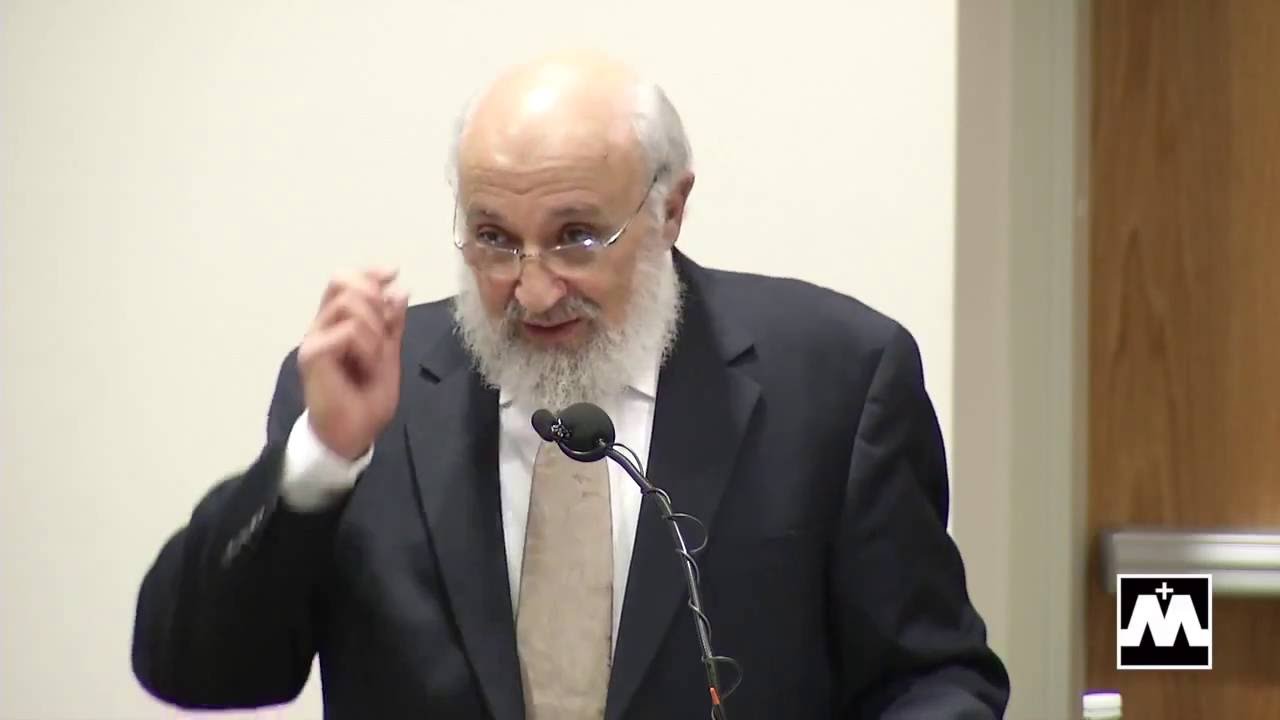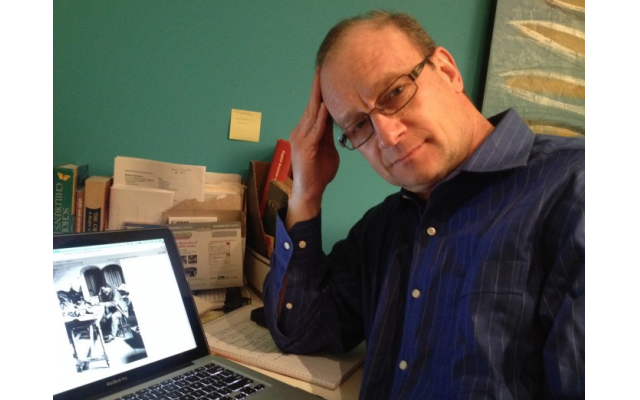A Survivor, Scholar and Mensch Challenged Over Israel
An elderly Jewish Holocaust survivor telling his life's story is challenged to indict Israel for its treatment of the Palestinians.
When we were his students four decades ago, neither my brother nor I knew of the ordeal Harold Kasimow endured as a child during the Holocaust.
Many years would pass before Kasimow spoke about how his family hid from German troops; in particular, the 19 months and five days that he, his parents, and two older sisters spent in a pit that his father dug beneath the stable of a Christian farmer.
“We shared our underground hideout with mice, frogs, and worms. We also dug a small hole for defecation and urination. The entire time we were in the dark and did not wash. We were all infested with lice,” he wrote in a 2004 essay.
Kasimow was not yet 4 years old when German troops overran his village, in a section of Poland that today is near Vilnius, Lithuania. Now 82-years-old, Kasimow lives with an awareness that of 1 million Jewish children living in Poland before the Holocaust, he was among 5,000 who survived.
“We were already buried there. If something happened, that could have been our grave. I never saw the sun. It was all strange to me when I got out. I’d never seen the light. I’d never been out of the hole. It was always pitch black,” Kasimow recalled in a 2008 interview with the alumni magazine of Grinnell College in Iowa, where today he is the George Drake Professor Emeritus of Religious Studies.
Inside my copy of “Understanding Jewish Theology: Classical Issues and Modern Perspectives,” the text from a course Kasimow taught, I found underlined passages and scribbled notes in essays by Abraham Joshua Heschel, Jakob Petuchowski, Arthur Hertzberg, Emil Fackenheim, and Solomon Schechter (the latter highlighted with an orange marker as a great-grandson might do).

All of this is prelude to finding Kasimow at the center of an incident trending on social media, stemming from his two days in October as a visiting scholar at Benedictine University, a Catholic college in Lisle, Ill., west of Chicago.
“Dr. Kasimow is one of the key figures in interfaith dialogue today. He is America’s foremost Jewish interpreter of papal contributions to interfaith relations and a model of spiritual integrity for believers in all traditions,” Peter Huff, chief mission officer at Benedictine, wrote prior to lectures that Kasimow delivered on “Advancing Abrahamic Friendship: Modern Popes in Dialogue with Jews and Muslims” and “Bearing Witness: Memories of a Child Holocaust Survivor.”
During the latter, a young woman identified in the student newspaper as president of the Students for Justice in Palestine chapter, objected to Kasimow’s answer to a question she asked.
“It honestly means the world that you were willing to share your story with us, but I wanted to bring your attention towards a similar story,” Ayah Ali said. “I’m sure you know about what’s happening in Palestine and my question to you is, do you support or do you condemn the establishment of the Zionist Israeli state, and whether it’s okay to exile and completely, the complete ethnic cleansing of the Palestinian people, the way that the Jewish people were exiled and ethnically cleansed?”
Kasinow responded that the Israel-Palestinian issue is “not an area of my expertise,” and said, “It’s such a complicated issue. There are many Jews involved in interfaith centers who are working on this very issue, trying to help create peace, but it’s really, both sides need to [be] open to each other and talk to each other. But if Israel should exist? Yes, I believe Israel should exist.”
Ali countered, “It’s disappointing to know that a Holocaust survivor would remain neutral in a situation of injustice,” to which Kasimow replied, “It’s not a matter of neutral, it’s not total guilt or innocence on either side.”
The video posted by the SJP chapter does not show Ali walked out after restating her opinion.
My brother, who became a rabbi and has stayed in touch with Kasimow, noted the “gentle” way that he dealt with the situation, offering context rather than confrontation.
I emailed Kasimow with personal greetings. Part of his response read, “I do want you to know that I was totally caught off guard with this comment and that will never happen again. I should have challenged her immediately on her comparison of the Palestinian-Israeli conflict with the Holocaust.”
When I spoke about 17 years ago at a Grinnell symposium on the news media and politics, I was touched that, so many years after I graduated, Kasimow came to see me. My brother and I know this much: Harold Kasimow is a scholar and a mensch.




comments